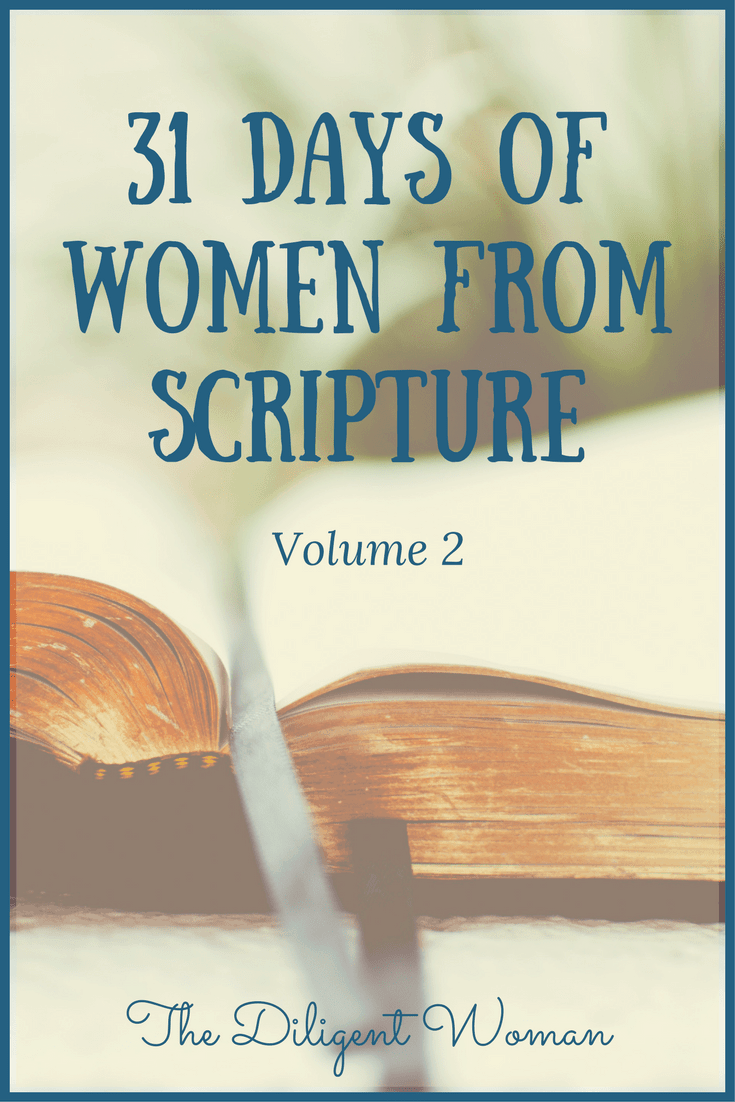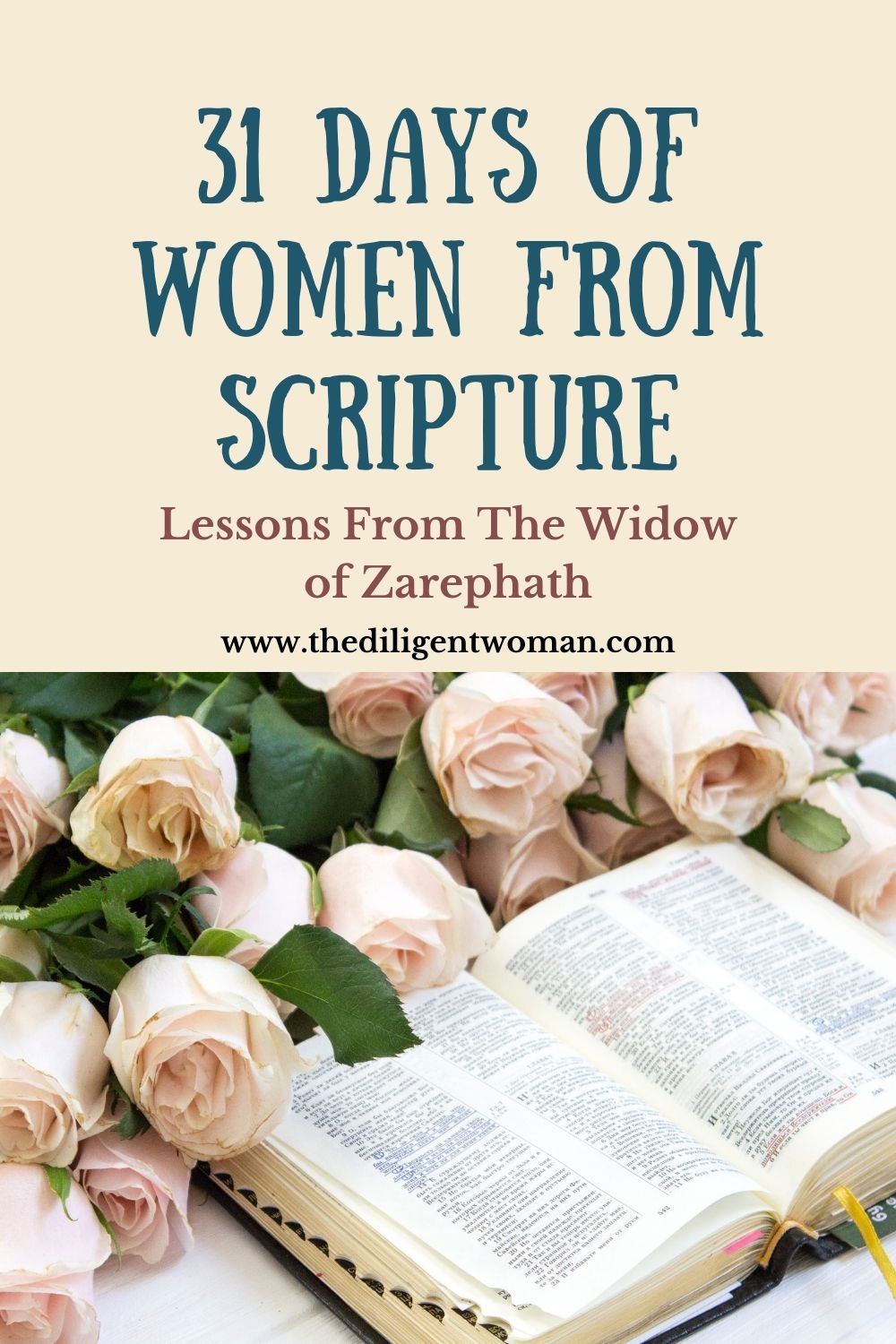Lessons from the Widow of Zarephath
Lessons from the Widow of Zarephath
31 Days of Women from Scripture
Volume 2
Day 12
God’s Plan
Day Twelve: Lessons from the Widow of Zarephath
1Kings.17.8-24; Lk.4.25-26
There is a theme throughout scripture that I just love – God has a plan.
To me it is just cool to watch His plan unfold. We are never going to know all the why and what-for of the parts of His plan – but we know the ultimate result He wishes for us – our being in heaven with Him.
Today’s woman teaches us that lesson on several fronts.
Let’s begin in Luke.4.25-26.
Jesus makes reference here to an event in the life of Elijah the prophet. Jesus makes the point that during a time of drought and famine, there were many widows in Israel who had need. But God sent Elijah out of Israel, to the town of Zarephath in Sidon instead.
We will get back to the context of Jesus’ reference in a minute.
But so far, the point is, there were those in Israel who needed something, but God sent the help to someone outside of Israel.
Now, let’s look at the telling of the event in 1Kings.17.8-24.
In the first part of chapter 17, Elijah informs King Ahab that God has stopped the rain and the dew and that it will not come again except at Elijah’s word. God then tells Elijah to go away to a place He has prepared to care for Elijah during this drought. Eventually the water runs out in this place, and here begins our story for today.
God sends Elijah to Zarephath, a city in Sidon, an area northwest outside of the land of Israel.
Elijah obeys and goes. When he comes to the city gate, he encounters a woman gathering sticks. This is the woman God had commanded to care for Elijah.
Elijah asks her for water to drink, which she immediately turns to go get. But Elijah stops her and asks her to also bring him something to eat.
The woman explains that her work in gathering sticks was so she could build a fire to cook the very last of her flour into a cake for she and her son. That was all the food she had left.
Elijah tells her to go ahead with her plan, but to make him a small cake first and then she could go back and cook more for herself and her son. And then he says,
“For thus says the Lord God of Israel, ‘The bowl of flour shall not be exhausted, nor shall the jar of oil be empty, until the day that the Lord sends rain on the face of the earth.’” 2Kings.17.14.
Just an aside – I find it fascinating, this glimpse at how what one may have thought was only a burden on Israel, the drought and famine, was bigger than that. Sidon had been without rain too!
Anyway, back to our story. The widow promptly obeys Elijah and finds that his words are true. Her flour bowl and jar of oil will not empty!
She is able to feed her household, including Elijah, for many days because of the words the Lord had spoken through Elijah.
While Elijah was still staying with her, but sometime after the initial miracle, the woman’s son becomes deathly ill and dies.
The woman rebukes Elijah for bringing this calamity to her home.
Elijah takes the boy from her and carries him to his own bed. In his room, Elijah cries out to God. He too doesn’t understand why he would be sent to provide food for this woman only to have her son die.
Three times Elijah stretches himself on the boy and prays to God, asking God to make the boy alive again.
The Lord heard Elijah and restored the boy’s life. Elijah takes the boy back to his mother, alive.
“Then the woman said to Elijah, ‘Now I know that you are a man of God and that the word of the Lord in your mouth is truth.’” (1Kings.17.24).
There is no reason to think that this woman had any faith in God at all.
Elijah was in her home for some time after the miracle of the oil and flour. She was not convinced of who had sent him to her yet. When her son dies, she calls Elijah “O man of God” (1Kin.17.18). But it seems to be sarcastic or derisive instead of respectful.
After the event with her son, only then did she believe (1Kin.17.24).
The miracle that occurred here accomplished the same purpose that every other miracle did – it showed God’s power and validated God’s word (Mk.16.20; Acts.14.3).
So, let’s go back to Luke.4.
In this context, Jesus is teaching in the synagogue in Nazareth. When He is given the book of Isaiah to read from, He chooses a passage to read. After reading it, He proclaims that the scripture has this moment been fulfilled!
Well, the Jews in the synagogue were impressed with this (Lk.4.22).
Jesus goes on to say that they are likely to ask for further proof, like the works that had been done in Capernaum (Mk.1.21-28). Jesus says though, that no prophet is received well in their own hometown – implying that Nazareth wouldn’t accept what He did like those in Capernaum did.
Jesus then indicates that because the hometown people refuse to accept the truth, this is why the truth is then taken to those outside. He uses the examples of the widow in Zarephath and Naaman the Syrian, both Gentiles, to prove that this has always been God’s way (Lk.4.24-27).
Jesus is laying out God’s plan to the Jews. They didn’t like what He ended up saying, but we should all love it. Because everyone of us is who Jesus came to release, heal, and to free!
The widow in Zarephath, she shows us how to be hospitable when we do not have much. She shows how we can listen to God, even when you’re not sure Who He is yet. She also stands alongside Rahab and Ruth as proof that God always intended everyone to have access to His saving grace.
This awesome pair of miracles – endless flour and oil and the raising of her son from the dead; they serve to prove to us Who God is.
The fact that God’s salvation (food to eat, words of truth) was taken to her also proves God’s promises to us are true.
Let her story renew your faith in the power of God. He doesn’t need to give you an unending supply of food to prove He’s God. He already did it for her and we have that testimony.
Allow her example to lift you up to share when you feel you have nothing to share. She didn’t hold back sharing the water with Elijah. She would have gladly shared her last morsel of bread if she could see how to make it feed three instead of two.
Be confident that God loves YOU, with all your sin and mistakes (Rom.5.8; Eph.2.1-10). He comes to you when you are not His, to show you the way to become perfect in Him (Titus.2.11-14; Acts.10.34-35). This woman wasn’t a believer. She became one through the truth taught by Elijah.
Don’t hold back on being obedient because you aren’t “good enough”. Who is? Only Jesus. And only Jesus can make you whole.
Jesus said the woman in Zarephath pointed to Him and the gospel.
Look at her and see the grace of God before you.
Enjoy!
If you enjoyed this lesson, click here to get a complimentary lesson from our “31 Days of Women from Scripture Volume 2”, “Reach Out. Lessons from the Woman with an issue of blood”.
If you would like to follow the rest of the #write31days challenge series click here – 31 Days of Women from Scripture Volume 2
If you are interested in the first 31 Days of Women series – click here – 31 Days of Women from Scripture




Oh, I am so very blessed. You are a neighbor at a linkup today and I needed to be reminded of God’s unending love, forgiveness, and His wonderful salvation. I love this post. About a woman who’s name I had forgotten, but the story I knew. Thank you for sharing these truths today. I also love the way you incorporate the Scriptures via Blue Letter Bible. They were easy to drop down and read. May your day be filled with the Lord.
Interesting points r pointed out here and the connection ,Thank you